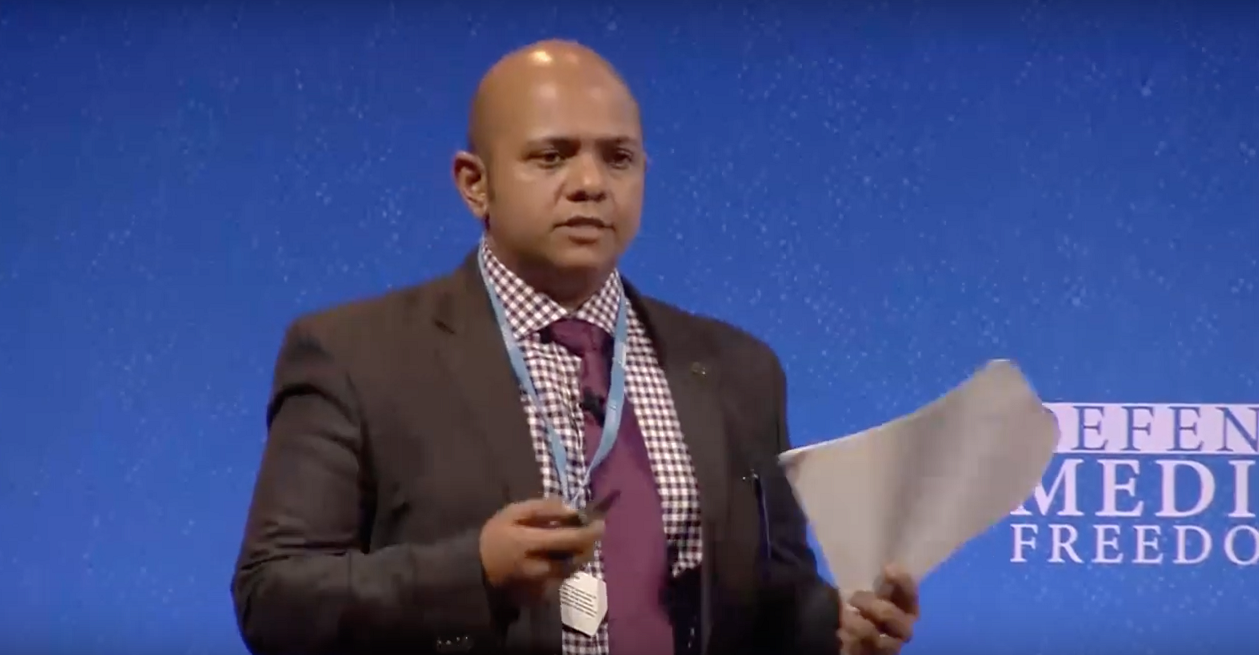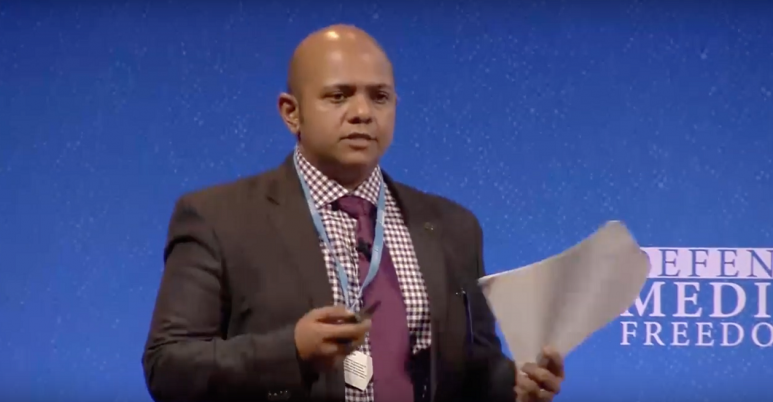17 July 2019
Country: United Kingdom
 At the Foreign and Commonwealth Office’s conference on International Media Freedom earlier this month, Indian journalist and editor of Caravan Magazine Dr. Vinod K Jose presented about the rise of anti-religious lynch mobs across India.
At the Foreign and Commonwealth Office’s conference on International Media Freedom earlier this month, Indian journalist and editor of Caravan Magazine Dr. Vinod K Jose presented about the rise of anti-religious lynch mobs across India.

“You can’t have more diversity than you have in India,” he said, beginning his panel by presenting a background on India’s rich history of housing many different religions, whose freedom of belief is enshrined by several different articles in the country’s constitution.
“But increasingly there are violations—violations in the form of targeted killings, he continued, showing video footage of targeted lynchings and killings filmed by perpetrators. In the past five years alone, there has been a 400 percent rise in these kinds of targeted killings of both Muslims and Christians, some of which have been organized by people in power.
“These attacks are not spontaneous,” he continued. “There is a systematic plan to this. Attacking the minority consolidates the majority.”
Despite the ongoing issue—and India’s democratic values—there is little investigative journalism work being done, largely due to the Hindu majority and the rise of the far right across the nation.
After the panel, a hand immediately shot up in the audience—which, as it turned out, belonged to Surya Prakash, the chairman of India’s national broadcasting corporation. He accused Dr. Jose of falsifying the information, and smearing the good name of India, the largest democracy in the world. Despite accusing Dr. Jose of inaccuracies, Prakash was unable to point out a single incorrect fact in his presentation.
While Dr. Jose was given a security detail for the rest of the conference, he saw little cause for alarm and rebuffed invitations to ask for asylum, given Prakash’s hostility and the sensitive nature of his reporting.
However, upon arriving home, he realized that news of the incident had traveled to the local press who were smearing his name, and spreading rumors about him.
More alarmingly, in his opinion, is that in the same week two civil rights activists had discovered a list where they were referred to as “urban Naxals”—a derogatory term referring to anti-Nationalists, or anti-Indians. A prominent human rights lawyer had her home raided—something that, according to Jose, is part of an emerging pattern of cracking down on both press freedom and minority rights.
“India today is a multi-faith, multi-lingual nation, with all the diversities in taste and conduct that can be imagined,” he wrote in a letter to United Kingdom Foreign Secretary Jeremy Hunt.
“To keep it so—to protect the freedoms guaranteed in the Universal Declaration of Human Rights in a country that is home to 1.3 billion people—attacks against the freedoms of speech, thought and religions must be protested by all. I echo a line from the literature of the London conference: “We must work together to stop the alarming increase in attacks. No journalist should fear for their life instead of their job.”
As his co-panelists, Media Diversity Institute stands with Dr. Vinod K Jose, and asks that the Foreign and Common Wealth Office does everything in their power to ensure his and his colleagues’ safety as part of their affirmed commitment to protecting the journalists that are reporting on the most sensitive and difficult issues of our time.
To watch Dr. Jose’s full presentation, click here.
